EDUC 5998- Masters Thesis (Enrolment Key: thesis)
Section outline
-
The Thesis is a 9-credit, three semester exit option for the Master of Education program at TRU. It is broken up into two courses: EDUC 5070 Thesis Proposal (3 credits) and EDUC 5998 Thesis (6 credits).
-
Developing Scholarly Independence
An MEd Thesis requires a significant amount of self-directed learning, as students are responsible for independently managing their time, setting goals, and progressing through the stages of inquiry, data collection, analysis, and writing. Unlike structured coursework, there are no regularly scheduled class hours; instead, meetings with the supervisor are arranged based on the student’s needs and progress. This flexible, student-led approach encourages scholarly independence and critical self-reflection.
Thesis students should visit the TRU Graduate Studies website for templates and procedures for thesis, ethics, and the oral defence. You’ll find support for formatting, copyright, and plagiarism guidelines. It also connects you to enrolment services, ethics approvals, writing and math help, leave of absence forms, workshops, and professional training opportunities. Follow this link to visit the website: https://www.tru.ca/research/graduate-studies/resources-for-graduate-students.htmlCourse Structure and Assignment Deadlines
The MEd Thesis is 9-credits, occurs over three semesters, and involves two courses. During the first semester, students complete EDUC 5070 Research Design (Thesis Proposal). During semesters two and three, students complete EDUC 5998 Masters Thesis. Below is a tentative outline of the timelines and project deliverables for semesters 1, 2, and 3. Note that the timelines and deliverables may be adapted to meet individual learner needs and promote student agency and scholarly independence.Semester 1: Thesis Proposal and Ethics
Semester 2: Data Collection, Analysis, and Writing Chapters
Semester 3: Writing and Oral Defence
-
During your first semester, you will complete A1: Thesis Proposal and A2: Research Ethics Board (REB) Application for engaging in research with human participants. There is a considerable amount of overlap between these two assignments, but they serve very different purposes. While A1 and A2 share similar content—such as the research question, methodology, and participant details—they serve distinct purposes. A1: Thesis Proposal demonstrates your scholarly readiness to conduct graduate-level research and lays the academic foundation for your thesis. In contrast, A2: REB Application is a formal ethics submission required for any research involving human participants. It ensures your study meets ethical standards related to consent, confidentiality, and participant safety, and must be approved before data collection can begin.
-
Use this template to complete the Thesis Proposal. An example is also provided as a guide.
-
Research Ethics Application
ROMEO is TRU’s online portal for submitting research ethics applications. As a student, you’ll use ROMEO to complete your REB proposal, upload documents like consent forms and your TCPS2 certificate, and track your application’s progress. Your supervisor must review and approve the application before you can submit. ROMEO keeps everything organized and paperless, and you’ll receive updates directly through the system. It takes approximately 4 weeks for the Research Ethics Board to review applications. Most applications require minor or major revisions, so anticipate at least 6 weeks for this process to be completed. Once approved, you’ll get an official letter and can begin data collection.
Access ROMEO and create an account by following this link: ROMEO - Researcher Portal
Sample REB Applications
This set of sample Research Ethics Board (REB) proposals provides examples of how graduate students have articulated their research purpose, methodology, participant recruitment, consent processes, and ethical considerations. These samples illustrate diverse approaches to educational research involving human participants and serve as models for aligning inquiry with ethical standards. Refer to these samples to better understand how to structure your own proposals and anticipate common revisions requested by ethics reviewers.
-
-
One common misstep among new researchers is claiming that “no one has studied this topic before” or "I can't find any published literature on my topic." In most cases, this reflects a limited search rather than a genuine research gap. Collaborating with a librarian can help ensure a more comprehensive review of the literature, positioning your research within existing scholarly conversations.
Contact the Library to schedule an appointment with a Librarian for support with your literature review. Librarians can provide expert guidance in locating relevant databases, refining search strategies, and identifying peer-reviewed sources. The subject matter librarian for the School of Education is Erin May, and she can be reached at emay@tru.ca
-
This online learning module was developed by Dr. Alana Hoare and two MEd students, Olubukola Bosede Osuntade and Rumana Patel. Each reading and activity will help guide you through the Literature Review process and equip you with the skills needed to analyze, synthesize, and present information effectively to support your research. The module is divided into four sections - Discover, Connect, Engage, Become. Each section builds upon the previous one to help you grow and refine your abilities in conducting a Literature Review.
-
-
The Thesis Supervisory Committee must consist of at least three members, including:
- primary supervisor
- co-supervisor, if applicable
- internal examiner
- external examiner
All members must be approved TRU Graduate Supervisors, and at least one must be from a different academic discipline than the student’s area of specialization. An affiliate committee member may also be included if they bring specialized expertise or experiential knowledge, provided their qualifications are documented and approved by the program.
Deadline: The Thesis Supervisory Committee should be established at the beginning of the final semester in which the student intends to defend their thesis. Three forms must be completed by the faculty supervisor at the beginning of the final semester:-
Supervisory committee forms establish and document faculty oversight of the thesis. The Thesis Proposal and Supervisory Committee Approval form confirms the proposed research topic, compliance approvals, and committee membership, including any affiliate members. The External Examiner Nomination Form, submitted by the supervisor, ensures the examiner is qualified and free of conflicts of interest. These forms uphold academic standards by ensuring students receive appropriate guidance and that external reviewers meet institutional and disciplinary criteria.
-
Timelines
During the final semester of the program, students defend their thesis. This is a very busy semester for thesis students as they finish writing and prepare to defend. Students will need to adhere to the following schedule to gradate on time:
-
The thesis defence process involves several coordinated forms. The Request for Thesis Defence confirms readiness and proposes defence dates. The External Examiner Nomination secures an independent reviewer, while the External Examiner Report evaluates the thesis and recommends revisions. During the defence, the Oral Defence Report records the committee’s decision—pass, revisions required, or fail. These forms ensure the defence is conducted with academic integrity, procedural transparency, and clear documentation of outcomes and revisions.
-
-
TRUSpace - Thesis Repository
TRUSpace is Thompson Rivers University’s institutional repository—a secure, Canadian-hosted digital archive for the scholarly output of TRU’s faculty, students, and staff. It provides open access to MEd theses, and enhances discovery through indexing by search engines. To read examples of completed MEd thesis visit TRUSpace at the following link: https://tru.arcabc.ca/node/227
-
Funding Opportunities
TRU offers a variety of internal and external funding to support graduate research and leadership. Thesis students may be eligible for the following scholarships and bursaries. Please speak with your supervisor to confirm eligibility and application deadlines.
- TRU Graduate Student Leaders: $6,000 for student leaders within the graduate community.
- Research Mentor Fellowship: $7,000 for mentorship roles.
- Students as Partners Fellowship: $3,000 to enhance student-engaged research.
- SWAAC Graduate Student Award of Merit: $3,500 for women showing leadership (next cycle in 2028).
- Canada Graduate Scholarships – Master’s (CGS‑M): $27,000 for one year (deadline Dec 1).
These awards help students develop research skills, build networks, and apply theory to practice. To find out more, visit the "Research Funding and Opportunities" website linked here: https://www.tru.ca/research/graduate-studies/awards-and-funding/research-funding-opportunities.html
Knowledge Mobilization Opportunities
Thesis students have the opportunity to share their research during the 3MT® competition where graduate students present their thesis in just three minutes, using a single static slide, to non‑specialists. The first place competitor wins $1,000 (second $500, third $250). It's a great way to sharpen your public‑speaking, clarity, and research‑summarizing skills. For more details, visit the website linked here: https://www.tru.ca/research/graduate-studies/3mt.html
All MEd students are encouraged to publish their thesis, project, or capstone papers. Several students have successfully published in the Canadian Journal for New Scholars in Education, which is a peer-reviewed, open access journal with hands-on support for emerging scholars. Additionally, students who create a poster as part of their knowledge mobilization, can share their research on the open access website Emerging Scholars in Education.
-
Creative Commons License
This Moodle is licensed as Creative Commons Attribution NonCommercial ShareAlike (CC-BY-NC-SA). This enables re-users to distribute, remix, adapt, and build upon the material in any medium or format for noncommercial purposes only, and only so long as attribution is given to the creator. If you remix, adapt, or build upon the material, you must license the modified material under identical terms. CC BY-NC-SA includes the following elements:
- BY: credit must be given to the creator.
- NC: Only noncommercial uses of the work are permitted.
- SA: Adaptations must be shared under the same terms.
Suggested Attribution
Hoare, A. (2025). EDUC 5998: Masters thesis [Moodle course]. School of Education, Thompson Rivers University. https://opencourses.tru.ca/course/view.php?id=35

